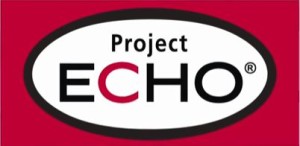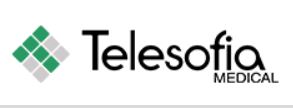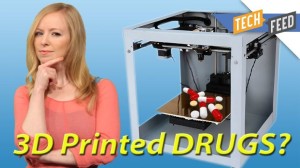- Technology Connects Nevada Specialists With Rural Doctors (kunr.org)Project ECHO (medicine.nevada.edu)
Video technology makes it possible for an urban specialist to see rural patients without anyone having to drive, but it doesn't solve a key underlying issue: there aren’t enough specialists in Nevada…a liver specialist in New Mexico posed this question: What if we used teleconferencing to train primary physicians in rural counties?...The result was Project ECHO, which created a model for other rural health programs in the country, including Nevada in 2012. The local Project ECHO program is run out of the University of Nevada, Reno. According to director Dr. Evan Klass, the program is helping to address doctor shortages…Next up? An expansion into Nevada's urban health centers, which Klass says tend to need just as much help as their rural counterparts these days.
- Antibiotics: urgent calls for global payment pot (in-pharmatechnologist.com)Securing New Drugs for Future Generations: The Pipeline of Antibiotics the Review on Antimicrobial Resistance (amr-review.org)
As World Antibiotics Awareness Week draws attention to the threat of resistance, pharma companies large and small say a worldwide overhaul of payment models will make anti-infective R&D profitable again…AstraZeneca published an open letter…calling on the UK government to attract companies to antibiotics discovery work with a more profitable funding mechanism…the pharma industry has been reluctant to sink funds into what it perceives as a poor return on investment. Traditional payment models – where companies profit per volume sold – are a weak incentive in an area where prescription levels are deliberately limited to prevent resistance…Documents so far suggest a shared pot funded by countries – possibly the G20 – “to establish a mechanism to purchase the global sales rights to new antibiotics, and to subsequently manage their supply internationally.“The development and manufacture of drugs would still take place within the pharmaceutical industry, drawn through the pipeline by the incentive of a full ‘buyout’ of their product once it is ready to market. Although the developer would surrender the right to market their new drug, they would be reimbursed by an amount sufficient to ensure an adequate return on their development costs, and the investment incurred.”
- Apixio launches cognitive computing platform (healthcareitnews.com)
Apixio announced…the release of its new cognitive computing platform, Iris, which it says will bring advanced data insights to healthcare by extracting and analyzing medical data previously trapped in electronic health records…The U.S. annually produces 1.2 billion clinical care documents, but about 80 percent of the data is unstructured and difficult to access…"Making sense of unstructured healthcare data is extremely challenging and requires sophisticated technology like cognitive computing to make the information useful,"…Iris is meant to give healthcare institutions access to patient data to create a more accurate care profile, thus improving the quality and efficiency...
- Health literacy startup wants to redefine personalized videos to improve adherence (medcitynews.com)
Israeli digital health startup Telesofia Medical has set out to be as specific as possible when it comes to developing personalized video content for health literacy program. Many of its customers are big pharma companies but some are health systems keen to prepare patients for an upcoming procedure or help patients follow a care plan when they are diagnosed with a condition or discharged from the hospital…part of the problem is people hear instructions like “take two pills twice daily” and accept it without really understanding what that means…The problem isn’t with the patient, it is with us not providing easy to understand information...or taking it for granted that patients understand the imparted information correctly…The videos, with content that can be customized by each customer, can include the patient’s care manager, doctor, or another healthcare professional. Depending on the person’s name, age and sex, the video will factor that data and address individuals personally.
- Safeway brushes off Theranos, enlists local lab for DTC testing in Arizona (medcitynews.com)Theranos Fails to Deliver as Safeway Deal Unravels (foxbusiness.com)
Take that, Theranos!..Clearly determined to offer direct-to-consumer lab testing through pharmacies, grocery chain Safeway seems to be shaking off the reported demise of a partnership with the not-so-revolutionary-after-all testing company (Theranos)… Sonora Quest Laboratories, a joint venture of Quest Diagnostics and Phoenix’s Banner Health, has opened its first testing center at a Safeway in...Scottsdale, Arizona. A second one will open next week in an upscale part of Phoenix...
- Laser delivery will allow painless, needle-less vaccines (in-pharmatechnologist.com)
A laser-based treatment will allow powdered vaccines to be delivered through the skin, scientists say…A University of Rhode Island researcher is developing an anti-smoking vaccine administered via “a laser-based epidermal skin powder delivery”…The laser platform creates micro-channel arrays – tiny pores – in the skin, through which a powdered vaccine is delivered from a patch applied onto the skin… the system could lead to the first FDA-approved nicotine vaccine, and beyond that, could provide a painless, needle-free alternative to liquid injections…“Generally, vaccines are liquid, but powdered vaccines are more convenient and they have a longer shelf-life,”… The method also allows use of potent nano-encapsuated adjuvants to safely boost skin vaccination without significant local reactions…“This system is expected to safely and profoundly boost nicotine antibody production and completely block nicotine entry into the brain,”
- FDA approves Adapt Pharma’s nasal spray for opioid overdose treatment (reuters.com)
Food and Drug Administration approved the first-ever nasal spray emergency treatment for opioid overdose…The spray, developed by privately held Adapt Pharma Ltd, uses naloxone, a drug used to treat opioid overdose for nearly 45 years but approved only in injectable forms…The treatment…is expected to have wide coverage under health insurance with affordable co-pays…Group purchasers, such as law enforcement, fire fighters, departments of health, local school districts, colleges and universities, and community-based organizations will be able to purchase the spray at a discounted price of $37.50 per 4 mg device…
- ‘Anti-malarial mosquitoes’ created using controversial genetic technology (theguardian.com)
Hundreds of genetically modified mosquitoes that are incapable of spreading the malaria parasite to humans have been created in a laboratory as part of a radical approach to combating the disease…The move marks a major step towards the development of a powerful and controversial technology called a “gene drive” that aims to tackle the disease by forcing anti-malarial genes into swarms of wild mosquitoes…mosquitoes were engineered to carry genes for antibodies that target the human malaria parasite...When released into the wild, researchers believe the modified insects will breed with normal mosquitoes and pass the anti-malarial genes on to their young, making an ever-increasing proportion of future generations resistant to the malaria parasite…To track which insects inherited the antibody genes, the scientists added a tracer gene that gave carriers red fluorescent eyes…Concern that drug and insecticide resistance are eroding recent successes in managing malaria has drawn attention to alternative approaches, including the use of genetically modified mosquitoes.
- Bumper haul of expensive new drugs heads to U.S. and Europe (reuters.com)
Food and Drug Administration has so far approved 37 novel drugs in 2015, more than the 34 that had been cleared by this stage a year ago and just short of 2014's final total of 41…European Medicines Agency is also waving through more products, recommending a total of 84 new medicines so far, up from 75 in the first 11 months of 2014…The brisk pace of new arrivals over the past two years reflects improved productivity in drug research labs and a change of pace by regulators, who have committed to speed up the process of getting life-saving treatments to patients, especially in cancer…The science has got better and we seem to be finding more molecules that are showing material improvements…the rapid pace of new drug launches is forecast to continue, with 225 new drugs expected to be approved between 2016 and 2020…Drug companies argue they need to make decent profits to pay for the billions of dollars needed for drug research. Many companies also have extensive low-cost or even free access schemes for patients who cannot afford their medicines… For healthcare systems in the developed world, paying for such pricey medicines is a challenge - but for many patients in poor countries they will remain out of reach, reflecting the economic realities of drug development.
- The Future Of Medicine Might Be 3D-Printed Pills (itechpost.com)
Researchers from the University of Columbia, University of North Carolina, and Wake Forest University presented a 3D printer software that creates pills for patients. The software calculates the medicine's dosage based on the patient's medical and biological data…a prototype software that creates customized pills for patients. The software uses algorithms that enables it to adjust medical dosages based on patient information like weight, race, liver and kidney functions…In a trial run, the researchers created patient profiles that resulted in different dosages of 80 total pills printed. The pills ranged from 124 mg to 373 mg, which were dosages with high accuracy with little inconsistency.








